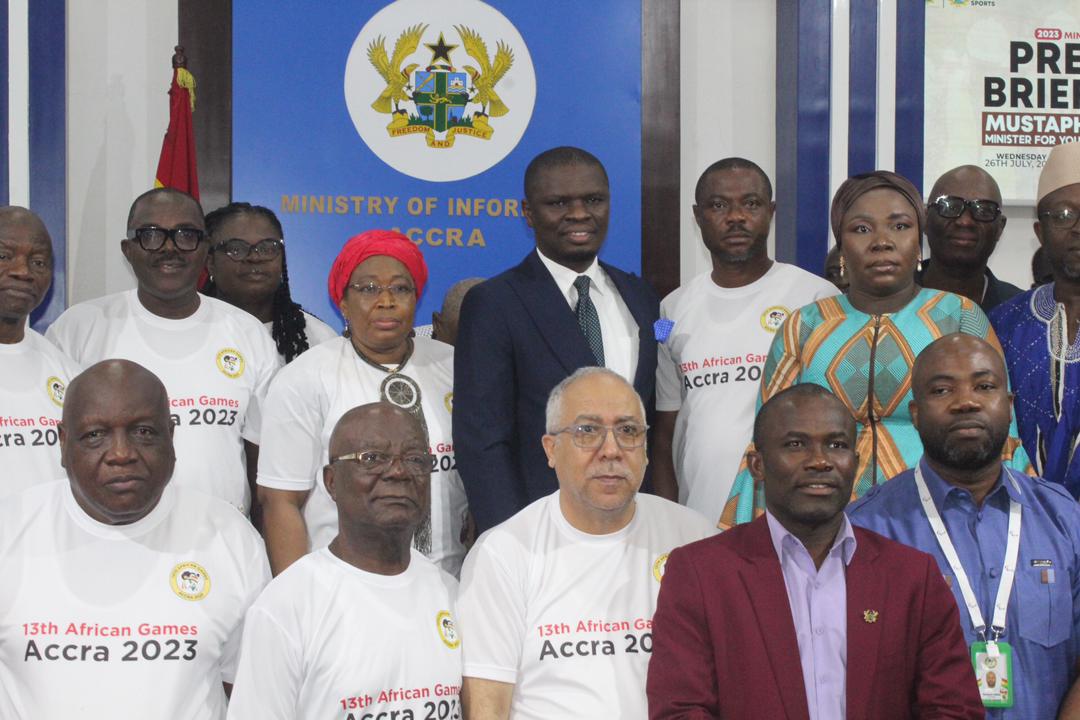
In early-February, South Africa discovered huge reserves of oil and gas off its shores. President Cyril Ramaphosa, along with many experts, described the find as a "game-changer" and promised legislation to ensure the "world class" discovery is properly regulated to ensure it benefits all concerned.
The question for South Africa in trying to reap the most from the estimated 1 billion barrels of oil equivalent, however, is "which legislation?" Many countries across Africa and the world have celebrated the discovery of lucrative natural resources only to find out that it takes good governance frameworks for it not to become a curse.
In charting a more positive course, therefore, South Africa would do well to learn from the experiences - good and bad - of other countries. In this regard, Ghana may offer some particularly useful lessons.
Spread out licensing and make it transparent
In 2007, the Jubilee oilfield became Ghana's first major commercial discovery. The field was estimated to contain 3 billion barrels of oil and was projected to have revenues of $400 million in its first year of production, increasing to $1 billion in subsequent years. In 2010, oil started to be pumped, sold globally at a little over $100 per barrel. Ghanaians looked forward to enjoying the proceeds from this bounty, but then the governance gaps began to show. The first sign of trouble came that same year when the government brought corruption charges against Kosmos, the American company managing the oilfield, and its local partner EO Group.
The government accused EO Group of money-laundering and making false declarations to public agencies. At the heart of the matter was how the company had secured its license to operate the field. The government alleged that EO Group executives had used their access to senior government officials - and possibly bribes - to acquire a deal that lopsidedly favoured itself and Kosmos to the disadvantage of the state.
The key lesson from this is that South Africa should make the licensing procedures for its assets as transparent as possible. South Africans are still reeling from allegations of state capture involving the Gupta family, which used its close ties with former President Jacob Zuma to control cabinet appointments and state contracts. To prevent similar problems happening in the oil sector, South Africa should ensure the agencies responsible for issuing licenses are completely independent of political influences.
One way to do this would be to separate the steps of the auctioning process into different government authorities. For instance, the Department of Energy could oversee the launch of the tender to auction; an independently-constituted committee of procurement specialists could do a first shortlisting; and the Ministry of Planning, Monitoring and Evaluation (which is under the Office of the President) could make the final selection. Divesting the process this way minimises untoward political influence.
Set up an independently-run Sovereign Wealth Fund
In 2011, Ghana's government set up a sovereign wealth fund (SWF), a special-vehicle investment fund tasked with managing money accrued from natural resources. This arrangement serves to provide a cushion against price volatility and act as a financial reserve when resources eventually run out.
Setting up the Ghana Petroleum Fund is smart, but its legal framework is not perfect. Because it is managed by Ghana's Central Bank, it is unable to enter into contracts itself and isn't structured according to the principles of standard corporate governance. For instance, instead of having directors and executives recruited competitively based on skills and needs, Ghana's SWF has a politically-appointed Investment Advisory Committee whose role was not even clear to its first members. Among other things, this structure creates fewer incentives for the management to ensure high returns on investment and may be partly why Ghana's fund has relatively underperformed.
Furthermore, under Ghanaian legislation, the Finance Minister also has the power to declare any information that could prejudice the performance of the Fund as "confidential". This loophole limits the body's transparency and could easily be abused.
If and when South Africa sets up a Sovereign Wealth Fund to manage the proceeds of its oil and gas discovery, it should ensure it reflects The Santiago Principles - a set of non-binding principles internationally prescribed for SWFs. In particular, its governance framework should establish a clear division of roles and responsibilities. The ideal management for an SWF consists of independent, private citizens who will not be swayed by the myopic inclinations of politicians and are made to account for every rand.
Make local content laws politics-proof and meaningful
In 2013, Ghana passed legislation giving preference to indigenous companies in the petroleum sector. Among other things, the government stipulated that Ghanaian companies must hold at least 10% equity in any joint venture in upstream projects. The aim was to ensure domestic companies benefit from an industry often dominated by big international firms, including by ensuring that expertise around technology is transferred to Ghanaians.
As well-meaning as local content laws are, however, they can pose some challenges. For example, local firms may struggle to develop the requisite capacity or standards the industry demands due in part to lack of access to capital and high interest rates. The case of EO Group and Kosmos also demonstrates that politicians can exploit local content provisions to reward their friends if the right safeguards aren't in place. Meanwhile, South Africa's own experience with programmes such as "Black Economic Empowerment" show how policies aimed at redressing inequalities can end up merely creating new elites rather than distributing economic rewards more widely.
All this suggests that local content requirements are just one part of the puzzle. South Africa already has an act in place that aspires for "historically-disadvantaged South Africans" to own 25% of all facets of the petroleum industry. But if it is to lead to the sector benefiting large numbers of people, it must be complemented with other economic measures to ensure local firms can be financially resilient, transparency around tenders, and investment in technical training for young South Africans. Currently, South Africa ranks 128th of 137 countries on quality of maths and science education.
Learning from others
Given its more diverse economy, South Africa has a better chance of avoiding the infamous resource curse than some of its African counterparts. But what will really test the government is its ability to manage its resources as effectively and transparently as possible. Ghana offers some lessons in this regard, but South Africa must look as far and wide as possible and examine opportunities and weaknesses across the sector to ensure its lucrative discovery truly ends up benefiting all its citizens.
Read Full Story
















Facebook
Twitter
Pinterest
Instagram
Google+
YouTube
LinkedIn
RSS